When teachers stop being teachers

We are currently living in an era focused on profits, where the word "labh" holds more sway than "love" in our interactions with those around us. In this profit-driven age, materialistic gains take precedence in our lives, influencing our choices when it comes to our professions or jobs. The central concern is how much a profession or job can contribute to our financial well-being and sustain our material needs. It also revolves around the potential for gaining power both personally and within society.
In our present societal structure, fairness is notably absent, and the government system does not treat its citizens or members equitably. This lack of fairness, however, does come with certain advantages for select individuals, particularly those who possess concentrated wealth and political influence. For them, this unjust system serves as the primary mechanism behind their ever-expanding sphere of influence.
Ordinary people have become disinterested in jobs where they struggle to meet their basic financial needs, with the teaching profession being a prime example. Even those who choose to become teachers nowadays often do so out of necessity rather than a genuine desire to educate. This trend is especially prominent among school and college teachers. Finding teachers who are truly passionate about teaching and inspiring students has become increasingly rare. Teaching, for many, has evolved into a mere job, a means of earning a livelihood in the pursuit of personal financial stability.
As a university teacher, my primary duty is to prepare the next generation of students as responsible citizens, instilling in them a thirst for knowledge, fostering consciousness, and nurturing critical thinking. Regrettably, these qualities are no longer highly valued among students, and many teachers have lost the desire to cultivate these attributes in their students.
This sentiment extends to university teachers as well. The aspiration of becoming a university teacher, which once carried a certain level of social respect and regard, has dwindled compared to previous generations. Today's university professors are not held in as high esteem as they once were, and this shift is partly attributed to the teachers themselves. Many of us who have assumed the role of professors have not fully embraced our primary responsibility, which is teaching in the classroom, and we have not prioritised the well-being and growth of our students.
As a university teacher, my primary duty is to prepare the next generation of students as responsible citizens, instilling in them a thirst for knowledge, fostering consciousness, and nurturing critical thinking. Regrettably, these qualities are no longer highly valued among students, and many teachers have lost the desire to cultivate these attributes in their students.
Contemporary teachers aspire to be more than just university educators. Some aim to become members of parliament and chairpersons of academic committees or even banks. These ambitions are actively leveraged by those in power, as university teachers have historically played a role in the political landscape of our country. They have been instrumental in starting movements, guiding university students, and contributing momentum to political causes in Bangladesh.
The influence of public universities, particularly institutions such as Dhaka University, Jahangirnagar University, Rajshahi University, and Chittagong University, has garnered significant attention from politicians. These institutions serve as centres of political activity, both through student political party affiliations and the involvement of the university's teachers. In this era of profits, teachers are not content with their roles as educators; they desire the wealth of industrialists, the power and influence of politicians, and a degree of leniency for unethical or illegal behaviour. Consequently, they align themselves with political parties and biases. This phenomenon extends to elected teacher committees, as it is the teachers themselves who vote these individuals into office.
Moreover, the recruitment process for teachers has evolved in such a way that qualifications and intentions have taken a back seat to personal gain and political affiliation. In the past, teachers were elected based on their qualifications and commitment to the institution, but now, the focus has shifted to what benefits individuals personally. This self-centred perspective includes considerations of how voting for a particular person will safeguard personal interests, provide room for individual decision-making, and secure future promotions without the requisite qualifications.
Those aspiring to be elected into these positions understand this dynamic and cater to it as a source of strength. They offer praise and even material support to junior teachers during critical moments, as they did during the pandemic, when they sent food and groceries to the homes of junior teachers. This is the mechanism by which teachers' representatives are elected, but it also makes them beholden to the government. As these representatives are aligned with the government, they often side with it in administrative matters, rather than advocating for the betterment of teachers and students.
All of this has separated the students from the teachers. We are not one anymore. As we teachers want to be MPs, bank chairpersons, and committee heads of different organisational bodies, we don't think of ourselves as teachers when we're not in class anymore. The students can feel this separation and look at us as accessible parts of their student life only in the classrooms. This has created a culture of classroom-based learning where the students are full-time students and the teachers only exist inside the time frame of classes. This means learning in a sense has become restricted.
Bangladesh has laws, but these laws are sometimes manipulated or abused. For instance, the Digital Security Act has been replaced by the Cyber Security Act, but the oppression persists. The experiences of citizens and teachers in relation to voting, government authority, and the promotion of falsehoods as truths have eroded the noble image of teachers. The respect and esteem once accorded to university teachers have diminished, and this loss of societal regard has contributed to the declining attractiveness of the teaching profession.
Nowadays, students who excel academically and achieve good results no longer find compelling reasons to pursue a career in teaching. Teaching, as a profession, has lost much of its social acceptability, exacerbated by a recruitment system that often admits under-qualified individuals into the profession. Many teachers even lack the competence to grade exam papers properly, focusing on superficial factors like handwriting instead of the substance of the content.
This situation has disillusioned today's students, who are potential teachers, as they are aware of the realities within the profession. In this era driven by personal gain, teaching offers little to motivate those considering it as a career.
As told to Monorom Polok of The Daily Star.
Dr Mohammad Tanzimuddin Khan is professor at the Department of International Relations in Dhaka University.
Views expressed in this article are the author's own.
Follow The Daily Star Opinion on Facebook for the latest opinions, commentaries and analyses by experts and professionals. To contribute your article or letter to The Daily Star Opinion, see our guidelines for submission.

 For all latest news, follow The Daily Star's Google News channel.
For all latest news, follow The Daily Star's Google News channel. 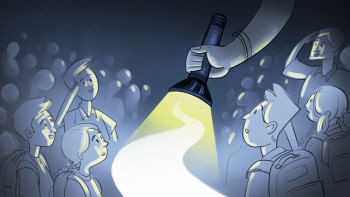
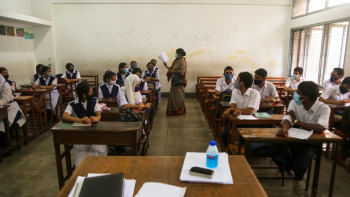


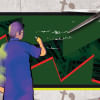
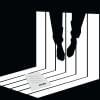
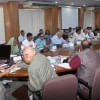




Comments